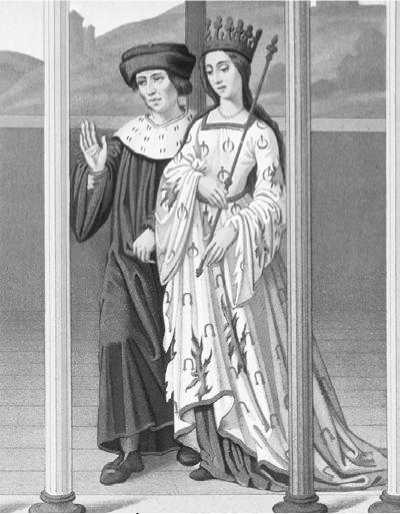Four years before Boethius (boh-EE-thee-us) was born, the Western Roman Empire came to an end when the Germanic chieftain Odoacer (oh-doh-AY-sur; c. 433-493) removed the last Roman emperor from power and declared himself "king of Italy." At the time, people did not perceive the fall of the Roman Empire as an earth-shattering event,
“In all adversity of fortune, it is the most unhappy kind of misfortune to have been happy."
From The Consolation of Philosophy
Boethius, with a woman who is intended to represent the human embodiment of Philosophy.
Reproduced by permission of the Corbis Corporation.
Boethius
Born 480 Died 524
Roman philosopher

One which many historians regard as the beginning of the Middle Ages. For one thing, there still was a Roman Empire— only it was the Eastern Roman Empire, based in Greece and referred to by modern scholars as the Byzantine Empire.
Though in fact he ruled Italy as a separate kingdom, Odoacer had declared himself a servant of the Eastern Roman emperor, and many Romans believed that business would continue as usual. Certainly that was the impression among Boethius's family, a distinguished line that could trace their roots back more than six centuries. Several of his relatives, along with other leading Roman citizens, served Odoacer in important positions.




 World History
World History









